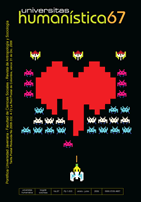Resumen
El conflicto urbano en Medellín, entre 1995 y 2005, ha sido analizado, fundamentalmente, como una guerra urbana que se explicaría a partir del conflicto político armado a nivel nacional. La presencia de actores armados vinculados a las Autodefensas Unidas de Colombia (AUC) –fundamentalmente el Bloque Cacique Nutíbara– y a las guerrillas [Fuerzas Armadas Revolucionarias de Colombia (FARC) y Ejército de Liberación Nacional (ELN)], permitió a muchos analistas explicar el conflicto en Medellín como «expresión local» del conflicto político a nivel nacional. En este artículo cuestionamos esa tesis. Sostenemos que más que una «guerra» urbana, explicable desde el ámbito de lo nacional y bajo una concepción muy estatal e «instrumental/racional» de lo político o del poder, Medellín ha vivido insertada en una multiplicidad de conflictos que se articulan de maneras específicas y que involucran aspectos bastante más subjetivos, presentes en dinámicas barriales preexistentes a la «guerra», que justo por eso preferimos llamar «conflictividades urbanas». Sobre la base de lo encontrado en la investigación, sugerimos a los expertos en violencia urbana algunas nuevas «claves» de interpretación del conflicto en Medellín. Una de ellas está atada a aspectos o a dimensiones subjetivas de la vida barrial que intervienen significativamente en la dinámica de los conflictos, incluidos los conflictos políticos. 
La revista Universitas Humanística se encuentra registrada bajo la licencia Creative Commons Reconocimiento 4.0 Internacional. Por lo tanto, esta obra se puede reproducir, distribuir y comunicar públicamente en formato digital, siempre que se reconozca el nombre de los autores y a la Pontificia Universidad Javeriana. Se permite citar, adaptar, transformar, autoarchivar, republicar y crear a partir del material, para cualquier finalidad (incluso comercial), siempre que se reconozca adecuadamente la autoría, se proporcione un enlace a la obra original y se indique si se han realizado cambios. La Pontificia Universidad Javeriana no retiene los derechos sobre las obras publicadas y los contenidos son responsabilidad exclusiva de los autores, quienes conservan sus derechos morales, intelectuales, de privacidad y publicidad.
El aval sobre la intervención de la obra (revisión, corrección de estilo, traducción, diagramación) y su posterior divulgación se otorga mediante una licencia de uso y no a través de una cesión de derechos, lo que representa que la revista y la Pontificia Universidad Javeriana se eximen de cualquier responsabilidad que se pueda derivar de una mala práctica ética por parte de los autores. En consecuencia de la protección brindada por la licencia de uso, la revista no se encuentra en la obligación de publicar retractaciones o modificar la información ya publicada, a no ser que la errata surja del proceso de gestión editorial. La publicación de contenidos en esta revista no representa regalías para los contribuyentes.


